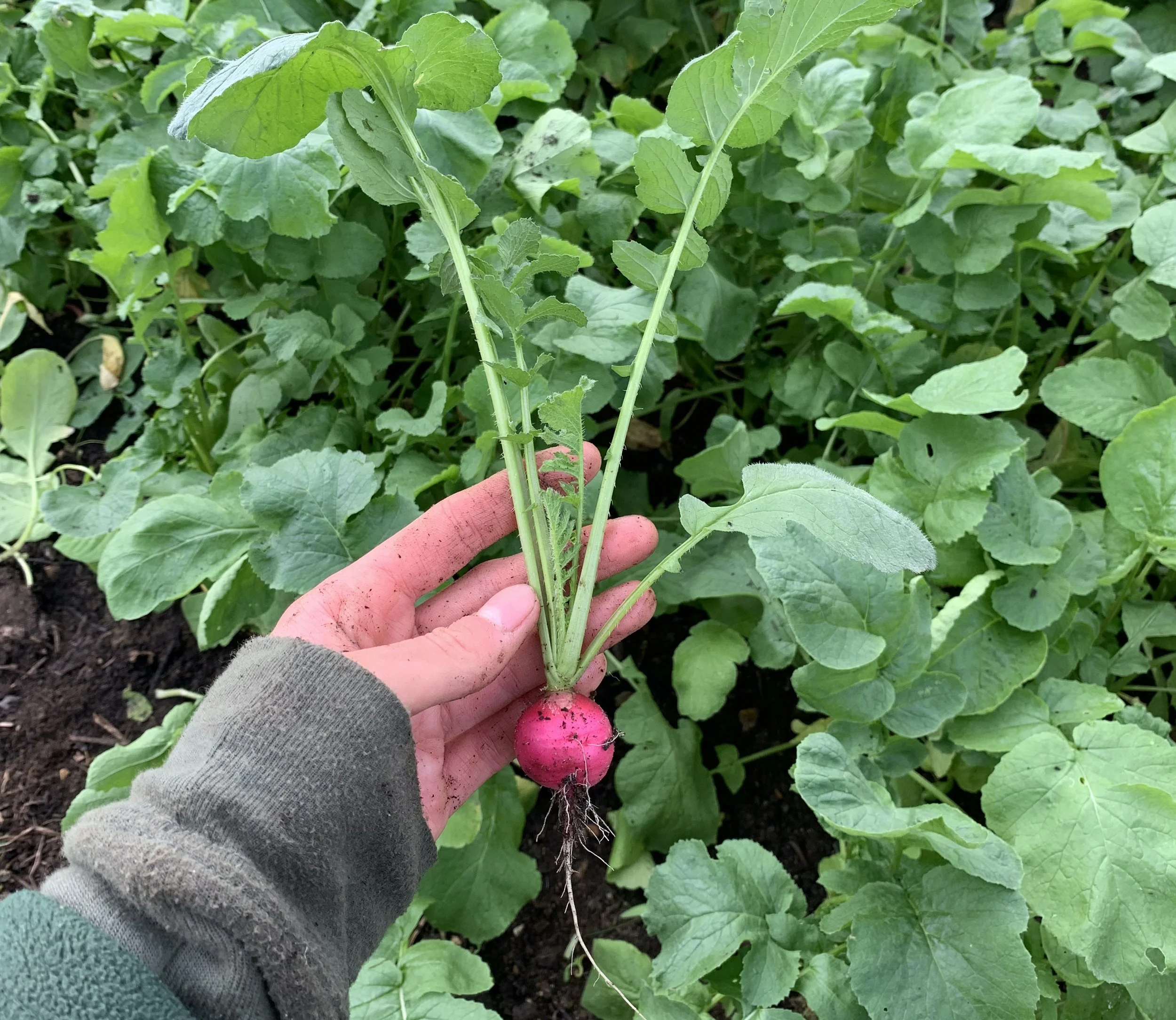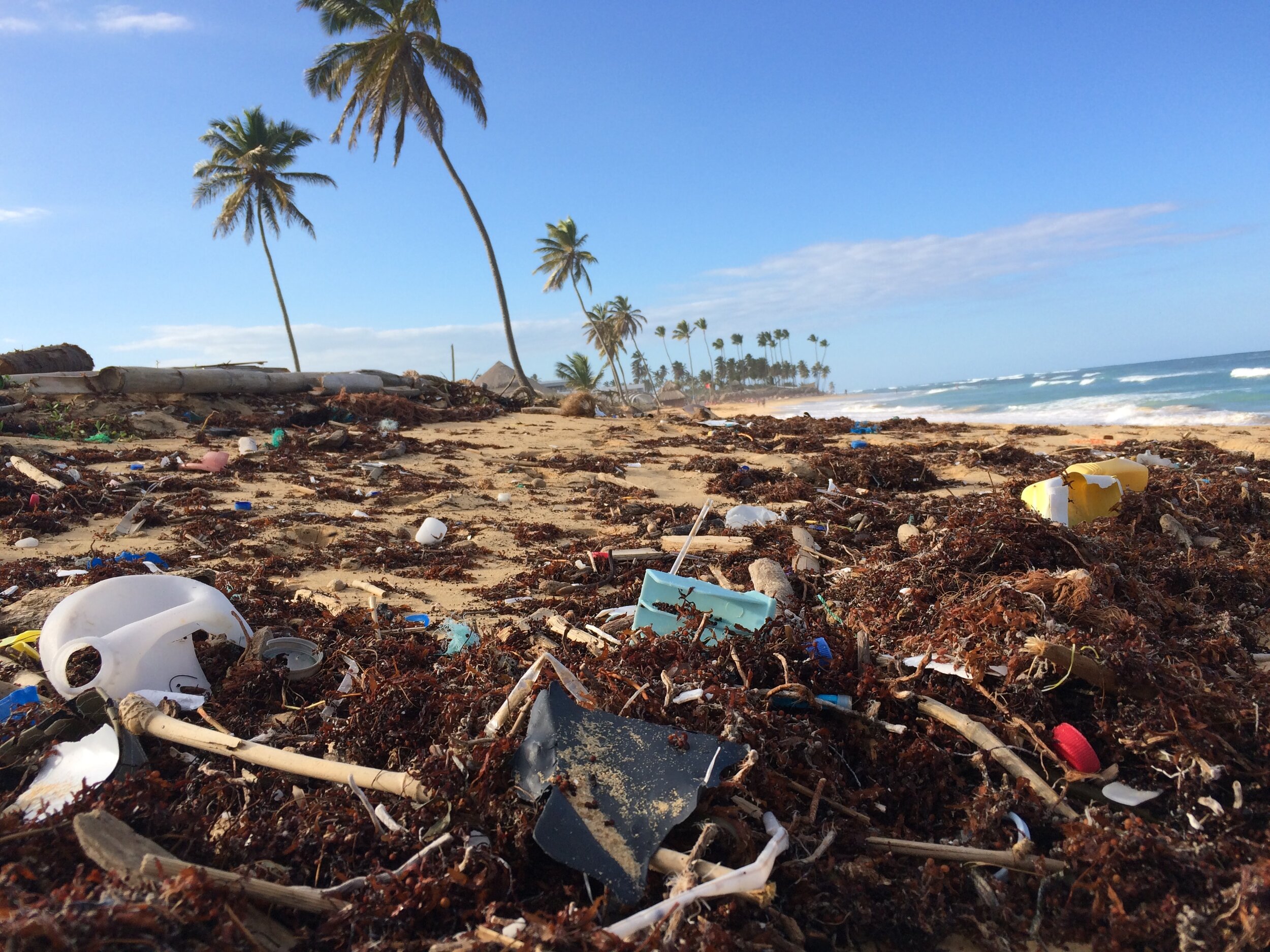Seaspiracy - a documentary that was recently released on Netflix - explores many aspects of the global fishing industry including large-scale commercial fishing, plastic pollution and whether eating fish can ever really be ‘sustainable’. While the documentary has had some criticism for taking quotes out of context, it has shone a spotlight on the fishing industry and caused many to think more about their food choices. One theme that this documentary and others like it tend to have in common is that they expose the problems within our globalised food system. We have access to food from all over the world - and while this luxury of choice has some benefits - it will always come with its problems. When our food is traveling across oceans to reach us, it can be pretty difficult to know where it’s come from and how it was grown, raised, or caught. So, can we still enjoy these foods without feeling caught in a system that we don’t fully trust?
One issue raised in Seaspiracy is around food labels - can we trust them? As consumers, we use food labels to ease our conscience around whether our food reaches a certain standard that doesn’t harm the natural environment or wildlife. The distance between the food at the supermarket and those who actually produce it can be far and wide, which is why we need labels and certification bodies. While there are some certification bodies and organisations doing good work to ensure that we can eat food from further afield and still know it’s come from a ‘trustworthy’ source, these labels and certifications aren’t always watertight or a guarantee. This will always be a problem within a global food system where our food is measured in air miles and we often don’t even know where it was produced. I cannot speak to every issue raised in Seaspiracy, but this issue of globalisation in food is a big reason why we are left with a feeling of hopelessness after watching these documentaries - how can we ever change a system that’s so big and, clearly, not transparent?
Our global food system has skewed our understanding of sustainability - to quote Guy Singh-Watson, Founder of Riverford, ‘anyone offering you a continuous range of fresh, day boat-landed fish is lying’ [1]. The reality is that sourcing enough fish out of the ocean to feed the number of people on this planet that want to eat ‘sustainable’ fish will never be a sustainable endeavour that benefits our oceans. To quote Guy again, ‘we need marine reserves where all commercial fishing is banned. Disturbance of the sea bottom should be illegal. Quotas need to be redistributed to smaller, local boats. The plundering of fish stock in the developing world by large foreign boats must stop, and fossil fuels must be taxed. If that is politically undoable, then yes, we should stop eating fish.’
However, in reality, a lot of people will never give up fish. So, is there another solution? The reason why so many people, after watching Seaspiracy, declared that they would never eat fish again is due to a lack of trust in our food system - so how can we repair it? We need to accept that certain foods will never be sustainably sourced in a global supply chain and question whether that means we should be eating them at all. We need a mental shift when it comes to our view of ‘sustainable food’ - if we cannot play an active role in, or even observe directly, where the food we’re eating came from then we will always be relying on someone else (usually with their own interests) to tell us that it’s sustainable. If you aren’t willing to investigate further how or where your food comes from then maybe you shouldn’t be eating it. The same goes for vegetables and meat - we need to support systems that are actually slow, work with nature, and are light on the planet. It means that if you choose to eat fish or meat, you eat it on occasion and from a traceable - and preferably local - source that is transparent and non-intensive.
Support small-scale farmers, fishermen, growers etc. who are producing food for their local communities, as they cut out the middlemen that stop us from fully understanding what we are eating. We don’t need a label to tell us whether something is produced in the right way if we have a direct relationship with our local producer. We all have power when it comes to the choices we are making every day with the food that we buy and consume. There are plenty of people producing food in a sustainable, honest way and if we want to change the system then we need to support them, rather than a system that we don’t trust. Food is political - as long as we choose to put our money into a system, that system will keep on growing and thriving. So, if we choose to put our money into a more transparent and (legitimately) sustainable food system then that is the system that will thrive.
[1] https://wickedleeks.riverford.co.uk/opinion/news-farm-fish-environment-ethics/uncomfortable-truth-about-fishing






